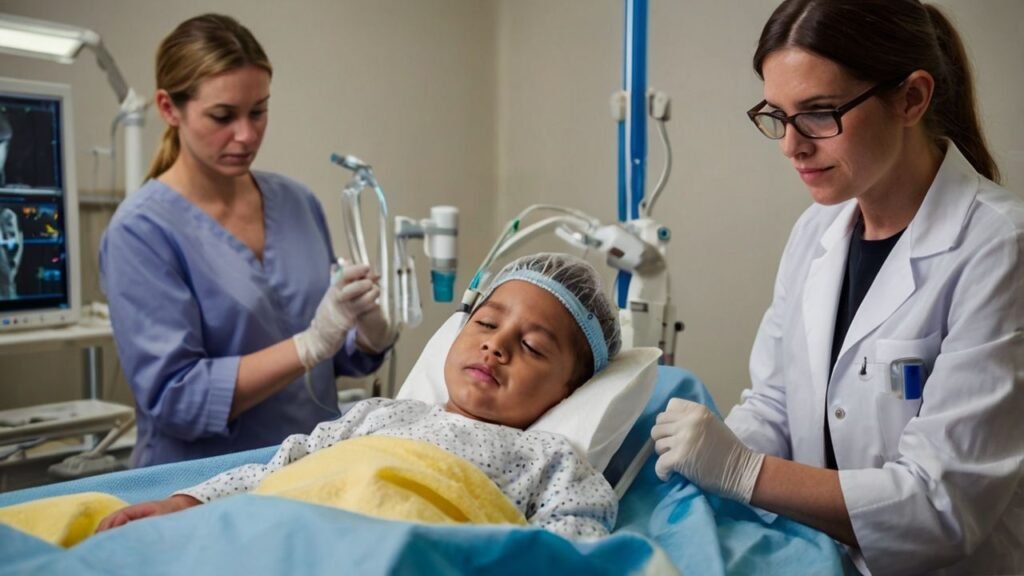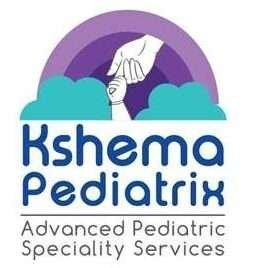Top 5 Conditions That Need a Pediatric Surgeon’s Attention

Top 5 Conditions That Need a Pediatric Surgeon’s Attention
When it comes to children’s health, every parent wants the best care—especially when a surgical intervention is involved. While most common illnesses in children can be managed through medicine and lifestyle changes, certain conditions require the specialized expertise of a pediatric surgeon. Unlike general surgeons, pediatric surgeons are trained to treat surgical problems in infants, children, and adolescents with a deep understanding of a child’s anatomy, growth, and emotional needs.
In this article, we’ll explore the top 5 conditions where a pediatric surgeon plays a crucial role, helping parents identify red flags early and seek timely care.
1. Inguinal Hernia and Hydrocele
What is it?
An inguinal hernia occurs when a portion of the intestine or abdominal tissue pushes through a weak spot in the groin muscles. A hydrocele is a fluid-filled sac around the testicle, often seen in newborns.
Why it matters:
Though these may look harmless, inguinal hernias in children don’t resolve on their own and may cause serious complications like bowel obstruction or strangulation if untreated. Hydroceles, though sometimes self-limiting, may require surgery if they persist beyond the first year of life.
When to consult a pediatric surgeon:
- A visible bulge in the groin or scrotum, especially during crying or straining
- Swelling that doesn’t reduce when the child is calm
- Signs of pain, vomiting, or abdominal distension
A pediatric surgeon will perform a simple outpatient procedure to correct the issue with minimal downtime and complications.
2. Appendicitis
What is it?
Appendicitis is an inflammation of the appendix, a small pouch attached to the large intestine. It is one of the most common reasons for emergency abdominal surgery in children.
Why it matters:
If left untreated, an inflamed appendix can burst, leading to peritonitis—a life-threatening infection of the abdominal cavity. Prompt diagnosis and surgery are essential.
When to consult a pediatric surgeon:
- Sudden pain starting near the belly button and moving to the lower right abdomen
- Loss of appetite, nausea, vomiting
- Fever and abdominal tenderness
- A child who prefers to lie still and avoids movement due to pain
A pediatric surgeon can quickly assess the severity and perform a laparoscopic appendectomy, which offers quicker recovery and less scarring.
3. Congenital Anomalies (Birth Defects)
What are they?
Some babies are born with structural anomalies like:
- Cleft lip and palate
- Congenital diaphragmatic hernia
- Esophageal atresia
- Anorectal malformations
- Spina bifida
These are often detected during prenatal scans or immediately after birth.
Why it matters:
Many congenital anomalies, if untreated, can affect a child’s growth, digestion, breathing, or neurological development. Early surgical correction ensures better functional outcomes and quality of life.
When to consult a pediatric surgeon:
- Diagnosis during prenatal screening
- Visible physical defects after birth
- Feeding or breathing difficulties
- Abnormal stool or urine patterns
Pediatric surgeons often work in multidisciplinary teams alongside neonatologists and pediatricians to plan staged surgeries and post-op rehabilitation.
4. Undescended Testicles (Cryptorchidism)
What is it?
In some newborn boys, one or both testicles fail to descend into the scrotum. This condition, called cryptorchidism, is fairly common in premature babies.
Why it matters:
If the testicles don’t descend by 6–12 months, it can lead to infertility, testicular cancer, or hernia formation later in life. Early surgical correction (orchidopexy) is strongly recommended.
When to consult a pediatric surgeon:
- No testicle felt in the scrotum after 6 months of age
- One side of the scrotum appears flat or smaller
- Family history of undescended testicles or reproductive issues
A pediatric surgeon can reposition the testicle and secure it in the scrotum, preserving future fertility and reducing cancer risk.
5. Pediatric Tumors and Cysts
What are they?
Children can develop various benign or malignant masses, such as:
- Wilms’ tumor (kidney)
- Neuroblastoma
- Liver tumors (hepatoblastoma)
- Cysts in the neck, liver, or ovaries
These may be discovered during routine check-ups or when the child shows symptoms.
Why it matters:
Early surgical intervention is crucial to:
- Confirm the diagnosis via biopsy
- Remove the tumor before it spreads
- Avoid complications like bleeding or organ damage
When to consult a pediatric surgeon:
- Unusual lump or swelling on the body
- Abdominal distension or discomfort
- Blood in urine or stool
- Unexplained weight loss or lethargy
Pediatric surgeons often work closely with oncologists and radiologists to ensure the safest and most effective treatment plan.
Conclusion: Trust the Experts for Your Child’s Health
Pediatric surgery is a delicate blend of precision, compassion, and timing. Children aren’t just small adults—they have unique physiological and emotional needs. That’s why it’s essential to consult a board-certified pediatric surgeon for conditions that need surgical care.
At Kshema Pediatric, our team of specialists is dedicated to providing advanced, child-friendly surgical solutions across a wide range of conditions—from emergency procedures like appendicitis to complex congenital repairs and tumor removals. With state-of-the-art infrastructure and a warm, supportive environment, we ensure both parents and children feel safe every step of the way.
If your child is facing any of the conditions mentioned above, don’t wait. Early diagnosis and treatment can make all the difference. Reach out to Kshema Pediatric and let your child receive the expert care they deserve.


